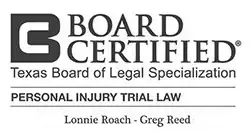Blood Disorders and Qualifying for Disability Benefits
Can I get disability benefits if I am suffering from the effects of a Blood Disorder?
Author Attorney Lloyd Bemis:
Updated: 9/25/2024
Summary: Can I get disability benefits if I am suffering from the effects of a Blood Disorder?
First you must meet the SSA’s financial requirement: You must have worked long enough, recently enough, and not made over a predetermined level of income.
Second you must meet the medical requirements:
To qualify for Social Security Disability benefits due to a blood disorder, specific documentation is required. Applicants must provide a laboratory report confirming a hematological disorder, which can be signed by a physician or accompanied by a physician’s report if unsigned. In cases where a definitive laboratory report is unavailable, a detailed report from a physician is necessary, confirming the diagnosis through appropriate laboratory analysis or other diagnostic methods, along with the results or an explanation of the diagnostic process.
Additionally, Social Security requires comprehensive medical records that demonstrate the severity of the blood disorder. This may include blood count results, documentation of blood transfusions, or records of bone marrow transplants. For instance, individuals with sickle cell anemia must document three or more crises within five months or three crises necessitating hospitalization in the past year. Those with chronic anemia must provide evidence of needing blood transfusions at least once every two months.
Blood is a specialized body fluid that circulates throughout the body transporting oxygen, sugars, and hormones.
Blood is composed of red blood cells that carry oxygen to the body’s tissues, white blood cells that fight infections; platelets which help the blood clot; and plasma, the liquid portion of blood. Here we outline what the Social Security Administration says about qualifying for disability while suffering from the effects of a blood disorder.

The SSA recognizes some Blood Disorders in its Blue Book. To qualify the requirements of the listing must be met or the inability to work must be proven.
Blood disorders can affect any blood component, impacting the blood’s ability to function and causing a variety of symptoms including unexplained fatigue and weight loss, or abnormal bleeding and clotting.
Treatment for blood disorders varies greatly and may include medications, vitamin supplements, blood transfusions, bone transplants and chemotherapy.
There are many blood disorders that affect red blood cells, anemia being the most commonly known.
Anemia, is a disorder characterized by a low number of red blood cells that causes fatigue, shortness of breath, and pale skin.
There are several types of anemia:
- Iron-deficiency anemia. Iron is necessary to produce red blood cells. Iron-deficiency anemia is usually due to blood loss from menstruation, low iron intake, ulcers or cancer and is treated with iron supplements.
- Pernicious anemia. This blood disorder is caused by a deficiency of vitamin B12, an inability to absorb B12, or an autoimmune condition and treated with B12 supplements or injections.
- Anemia due to chronic disease. Some medical conditions, such as kidney disease, may cause anemia. Injections of the synthetic hormone epoetin alfa are used to stimulate blood cell production.
- Apastic anemia occurs when the bone marrow does not produce enough red blood cells or white blood cells. It can be caused by hepatitis, Epstein-Barr, or HIV and is treated with medications and bone transplants.
- Autoimmune hemolytic anemia. In this disorder an overactive immune system destroys the body’s red blood cells. Drugs that suppress the immune system, such as prednisone, are commonly used to treat this condition.
- Thalassemia is a genetic form of anemia that affects people of Mediterranean descent. While many people with this disorder have no symptoms and require no treatment, others need blood transfusions.
- Sickle cell anemia. This disorder is an inherited form of anemia affecting people whose families originated in Africa, South or Central America, the Caribbean islands, India, Saudi Arabia, Turkey, Greece, and Italy. The red blood cells affected are sticky and stiff, blocking blood flow and causing pain and organ damage. Treatment includes antibiotics, vitamins, blood transfusions, and various medications.
Contact a Social Security disability attorney at 512-454-4000 for a free consultation and see if you can get disability benefits while suffering from Blood Disorders. If you have been denied disability don’t give up!
In addition to anemia, polycythemia vera is another blood disorder which affects red blood cells.
Polycythemia is an uncommon blood cancer in which the bone marrow makes too many red blood cells. These excess blood cells thicken the blood, slowing its flow and causing complications, such as blood clots. Treatment may involve drawing blood from the body, aspirin and medications to decrease blood cells and destroy cancer cells.
Blood disorders that affect white blood cells:
- Lymphoma is a form of blood cancer that develops in the lymph system where white blood cells multiply and spread abnormally.
- Leukemia is a form of blood cancer where malignant white blood cells multiply inside bone marrow.
- Multiple myeloma is a form of blood cancer in which white blood cells and plasma cells multiply, releasing substances that cause organ damage.
- Myelodysplastic syndrome. A blood cancer that develops slowly and affects bone marrow.
Blood disorders that affect platelets:
- Thrombocytopenia is a condition characterized by a low number of platelets.
- Idiopathic thrombocytopenia purpura is a blood disorder that causes a low number of platelets resulting in bruising, abnormal bleeding and small red spots on the skin.
- Thrombotic thrombocytopenic purpura is a rare blood disorder in which too many platelets are produced, causing excess clotting and/or bleeding.
Blood disorders affecting plasma:
- Hemophilia is a genetic deficiency of certain proteins which cause the blood to clot.
- Hypercoagulable state is a condition where the blood clots too easily.
- Deep venous thrombosis is a condition where a blood clot forms in a deep vein, typically in a leg, and may travel to the lung, causing a pulmonary embolism.
A blood disorder can be seriously disabling. The Social Security Administration has listings for many of these blood disorders in its Blue Book, setting out the requirements for qualifying for disability benefits for each condition.
- We evaluate non-malignant (non-cancerous) hematological disorders, such as hemolytic anemias (7.05), disorders of thrombosis and hemostasis (7.08), and disorders of bone marrow failure (7.10). These disorders disrupt the normal development and function of white blood cells, red blood cells, platelets, and clotting-factor proteins (factors).
- We evaluate malignant (cancerous) hematological disorders, such as lymphoma, leukemia, and multiple myeloma, under the appropriate listings in 13.00, except for two lymphomas associated with human immunodeficiency virus (HIV) infection. We evaluate primary central nervous system lymphoma associated with HIV infection under 14.11B, and primary effusion lymphoma associated with HIV infection under 14.11C.
In order to qualify for Social Security Disability benefits with any blood disorder, you will need to provide Social Security the following evidence documenting a diagnosis of a blood disorder:
- A laboratory report of a definitive test that establishes a hematological disorder, signed by a physician; or
- A laboratory report of a definitive test that establishes a hematological disorder that is not signed by a physician and a report from a physician that states you have the disorder; or
- When Social Security doesn’t have a laboratory report of a definitive test, a persuasive report from a physician that a diagnosis of your hematological disorder was confirmed by appropriate laboratory analysis or other diagnostic method(s). This report must state that you had the appropriate definitive laboratory test or tests for diagnosing your disorder and provide the results, or explain how your diagnosis was established by other diagnostic methods consistent with the prevailing state of medical knowledge and clinical practice.
In addition to complete medical records, Social Security will want to see proof of the severity of the particular blood disorder you suffer from.
Depending on the disorder, you may need to provide results of blood counts or documentation of blood transfusions or bone marrow transplants. For example, if you have sickle cell anemia, you need to have had three or more crises within five months or three crises requiring hospitalization in the past year; if you have chronic anemia, you need to show that you need a blood transfusion at least once every other month.
The wide range of medical conditions that are classified as blood disorders and the specific medical evidence required for each one can make filing for disability benefits very complicated.
A qualified disability attorney can help you evaluate your eligibility, gather medical and financial documentation, and guide you through the filing process.
In order to qualify for Social Security Disability, you will need to satisfy a few specific requirements in two categories as determined by the Social Security Administration.
The first category is the Work Requirements which has two tests.
- The Duration of Work test. Whether you have worked long enough to be covered under SSDI.
- The Current Work Test. Whether you worked recently enough for the work to actually count toward coverage.
The second category is the Medical Eligibility Requirement.
- Are you working? Your disability must be “total”.
- Is your medical condition severe? Your disability must be “severe” enough to interfere with your ability to perform basic work-related activities, such as walking, sitting, and remembering.
- Is your medical condition on the List of Impairments? The SSA has a “List of Impairments” that automatically qualify as “severe” disabilities. If your disease is not listed this does not mean you cannot get disability, it means you must prove you cannot maintain employment due to your limitations.
- Can you do the work you did before? SSDI rules look at whether your medical condition prevents you from doing the work you did prior to developing the condition.
- Can you do any other type of work? If you cannot do your prior work, an evaluation is made as to whether you can perform any other kind of work.
More details can be found on our Qualifying for Disability page.
Disability benefits are an important source of income for those who are unable to work. If you are not able to work due to accident or illness, you may be eligible for Social Security Disability or Long Term Disability benefits. If you have applied for benefits and been denied, contact the attorneys at Bemis, Roach and Reed for a free consultation. Call 512-454-4000 and get help NOW.
Leukemia can qualify for Social Security Disability
Multiple Myeloma and Qualifying for SS Disability Benefits
Can I get Disability for Hepatitis C? – Lawyer Advice


Your Free Initial Consultation
Call now:
At Bemis, Roach and Reed, if we can't help you, we will try to find the right attorneys for you.
We offer each of our prospective clients a free no obligation one hour phone or office consultation to see if we can help you and if you are comfortable with us. We know how difficult a time like this can be and how hard the decisions are. If we can be of assistance to you and help you find a solution to your issue we will, even if that means referring you to another attorney.
Let's get you Started:
If you could provide us with some basic information about your claim we will get right back with you with a free case evaluation and schedule your Free Consultation Today.
You can also email us at: contact@brrlaw.com
Kind Words from Our Clients
“The attorneys and staff at Bemis, Roach & Reed have provided me and my husband, Jeff, with stellar advice, care, and service. They made navigating the SSDI process easy, painless, and as timely as possible. During this difficult time in our lives it was a tremendous relief to know they were on our side and keeping us updated on next steps and timelines. We also had questions about my husband’s long term disability insurance and they helped us get those questions answered and resolved without any additional fee. I highly recommend Bemis, Roach & Reed.” – Kelli G
“I needed a lawyer for my case and had googled best lawyers. They came up first on my list and decided to give them a call. From the moment I called I knew I chose the right people. They said they would fight for me and fight they did. They knew what they were doing and kept good communication throughout the process. If you need someone that will listen, understand, and fight then these are the people. HIGHLY RECOMMEND.” – Marcel L.
“I’ve had a great experience working with Bemis, Roach & Reed for my disability case. I spent two years fighting on my own, until I was informed to look for a disability lawyer. Right away, sending in questions was a breeze, and from the moment my case was accepted, everything became a major weight off my shoulders. My newest appeal was filed for me, my medical records and case history sorted for me, and I could finally focus on my appointments and treatment with a little less worry. Everything was explained to me in a way that made sense, the process was set out in an easy to understand way. And, just like that, at the beginning of July 2023, my claim was accepted!” – Sunshinemutt






